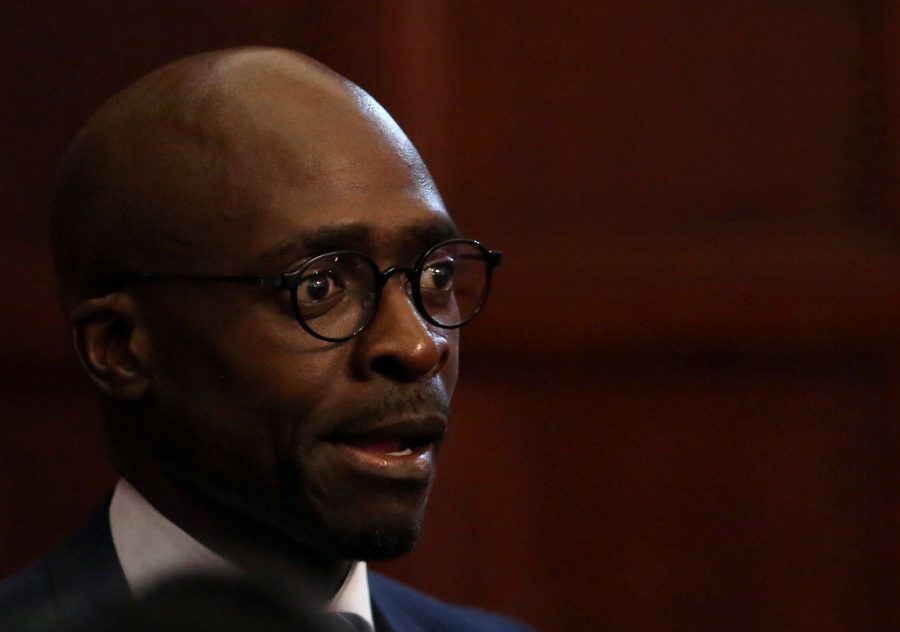
South Africa’s New Finance Minister Beats Reform Drum Amid Gordhan Fallout
PRETORIA (Reuters) – South Africa’s new finance minister signalled on Saturday he would oversee a redistribution of wealth to the country’s black majority, as a row over the sacking of his predecessor laid bare bitter divisions within the ruling ANC party. Saying the country was poised at a “polarised and contentious” moment, Malusi Gigaba promised […]
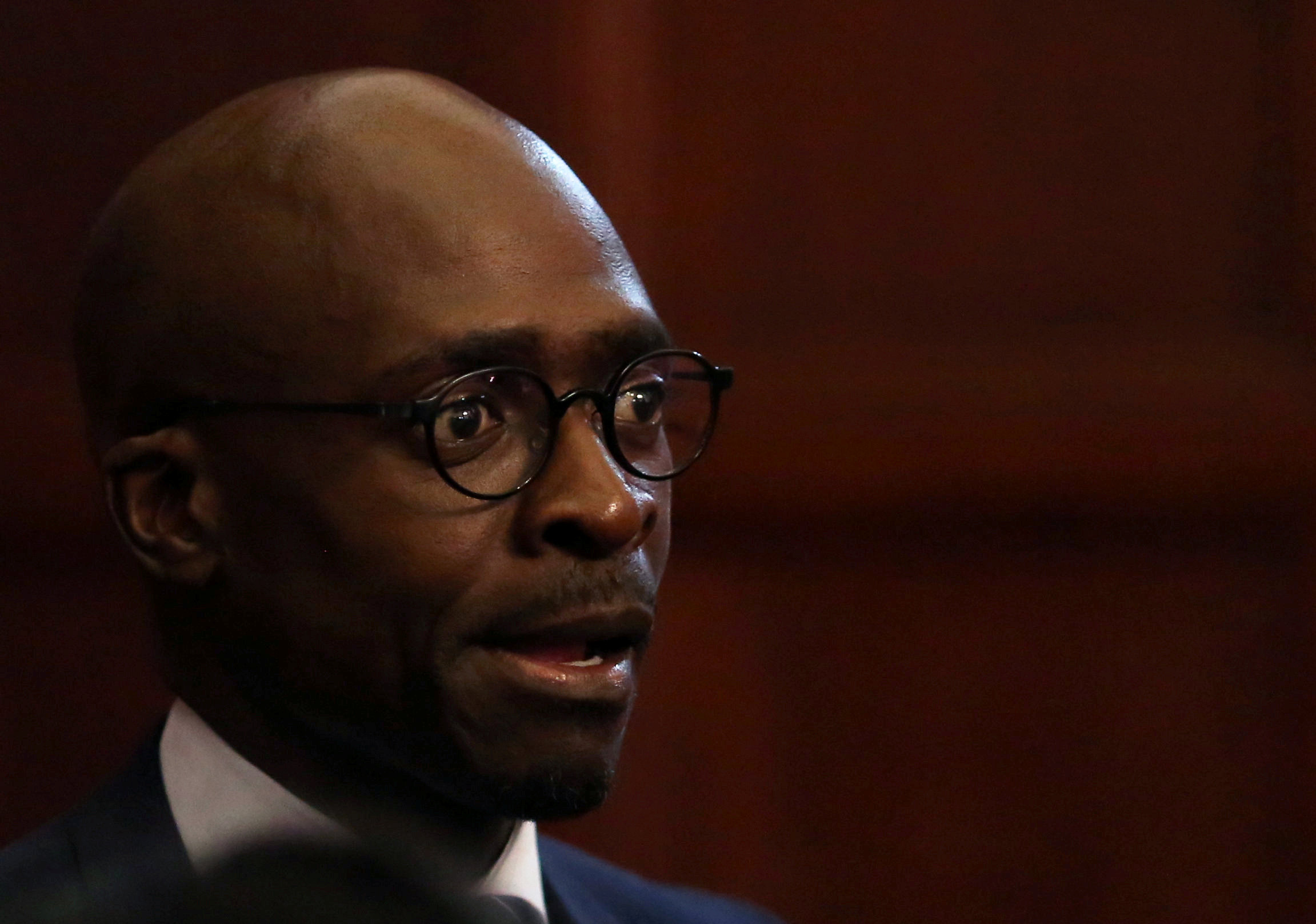
PRETORIA (Reuters) – South Africa’s new finance minister signalled on Saturday he would oversee a redistribution of wealth to the country’s black majority, as a row over the sacking of his predecessor laid bare bitter divisions within the ruling ANC party.

Saying the country was poised at a “polarised and contentious” moment, Malusi Gigaba promised to transform the economy while keeping the public accounts balanced.
“The ownership of wealth and assets remains concentrated in the hands of a small part of the population. This must change,” he told a televised news conference.
His predecessor Pravin Gordhan, respected by international investors and dismissed on Friday after months of internecine sparring with President Jacob Zuma, meanwhile urged action against what he called a growing “streak of authoritarianism” in domestic politics.
Gordhan spoke at a memorial service for veteran anti-apartheid activist Ahmed Kathrada where the crowd, which included many ANC supporters, chanted for Zuma’s removal.
Gigaba’s comment on the economy chimed in with the more populist line taken by Zuma, who faces a growing backlash from within his own party after electoral setbacks and missteps that included a fiasco that threatened the payment of social grants to 17 million.
African National Congress administrations that have governed without interruption since Nelson Mandela become president in 1994 have promised to spread prosperity. Progress has been made including building 4.5 million housing units for the poor and establishing a broad-based social welfare system.
But South Africa remains one of the world’s most unequal societies, riven by glaring income disparities, an official jobless rate of 26.5 percent, and widespread poverty. The economy is barely growing and inflation threatens to reignite.
On Saturday, the president spoke of “our stated commitment to advance radical socio-economic transformation” at the launch of a housing project in his home province of KwaZulu Natal.
Zuma recently said he wants to change the constitution to expropriate farmland, which remains mostly in white hands, without paying compensation to the owners, raising fears of the land grabs that wrecked Zimbabwe’s economy.
Analysts have said such populism is aimed at the ANC’s rural political base.
‘MASS MOBILISATION’
Such an agenda could face challenges from more moderate elements in the broad tent that is the ANC and potentially cost the country its treasured investment grade rating, significantly raising the government’s borrowing costs and in turn restricting its ability to pursue radical policies.
The ANC’s divisions were on full display on Saturday at the service for Kathrada, who died on Tuesday aged 87. Sentenced to life imprisonment alongside Mandela, he went on to become an open critic of Zuma.
Last year, Kathrada wrote an open letter calling on Zuma to resign after a series of scandals, including the use of taxpayers’ money for lavish upgrades to his rural home.
A combative Gordhan, himself an anti-apartheid veteran and pointedly seated next to the widow of the revered Mandela, Graca Machel, told the hundreds in attendance that a “streak of authoritarianism (is) creeping into our system”.
“We are a vibrant society that has a long history of mass mobilisation and mass organisation … I’m unashamedly encouraging mass mobilisation,” he added to cheers.
Zuma had been requested by the family not to attend either the funeral earlier this week – where speakers openly criticised the president – or the memorial, which the government postponed but Kathrada’s foundation and supporters went ahead with.
‘A PEOPLE’S GOVERNMENT’
Zuma’s sacking of Gordhan – after recalling him from an investor roadshow in London – shook South African markets on Friday, undermining his authority and threatening to split the ANC.
Gigaba acknowledged on Saturday the political challenges he faces.
“I am fully aware that we are at a highly politicised, polarised and contentious moment in the history of our young democracy,” Gigaba, previously Home Affairs minister, said.
Analysts and local media have said the struggle between Gordan and Zuma is rooted in the president’s desire to get more control over the Treasury, which has a world-class reputation for transparency and expertise.
Gigaba said fiscal policy would not be done simply in the interests of big business and capital.
“For too long, there has been a narrative or perception around Treasury, that it belongs primarily and exclusively to ‘orthodox’ economists, big business, powerful interests and international investors. With respect, this is a people’s government,” he said.
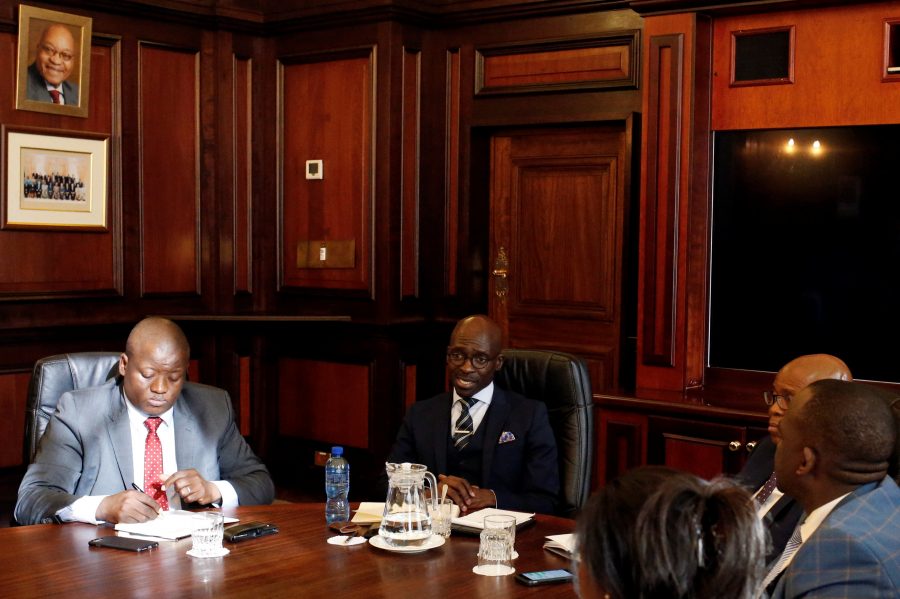
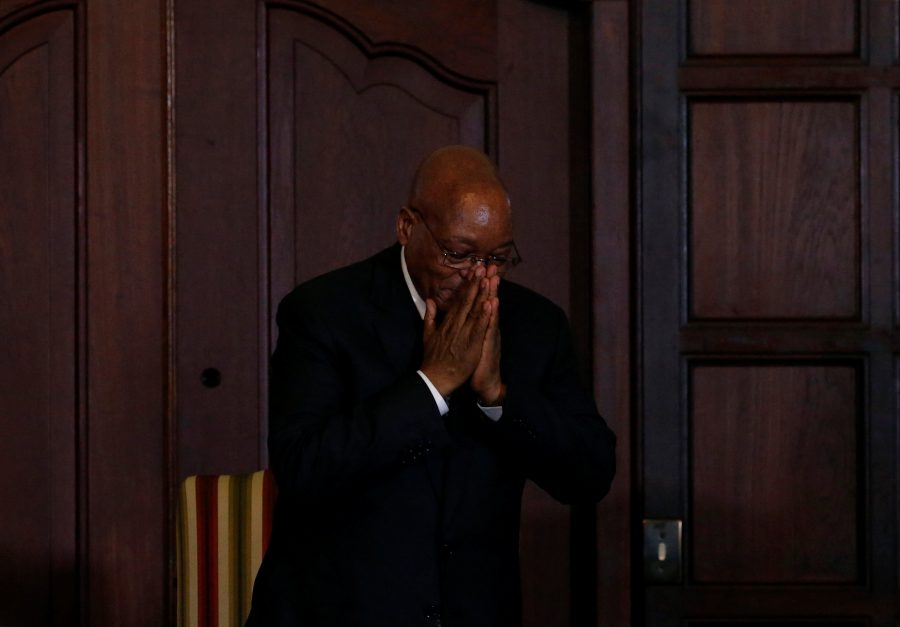
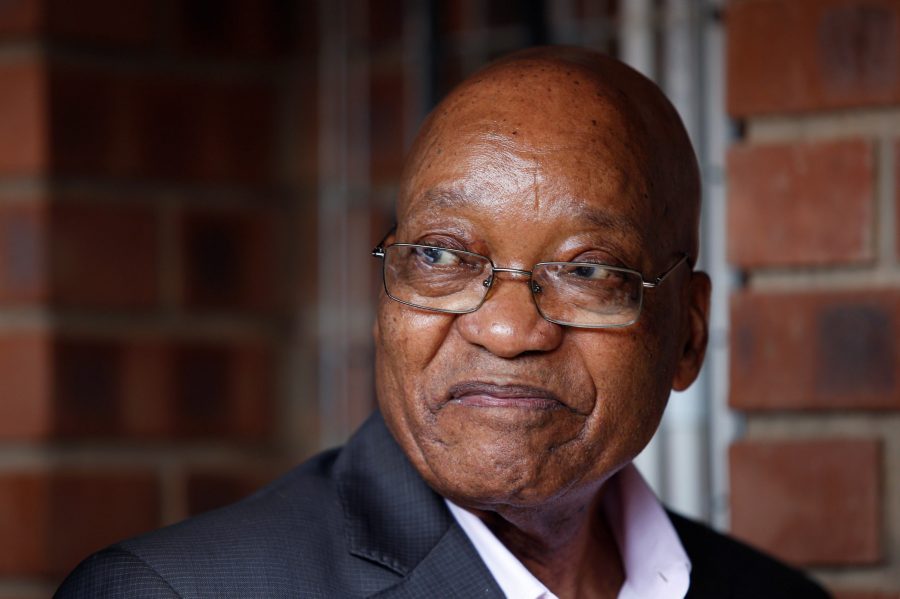
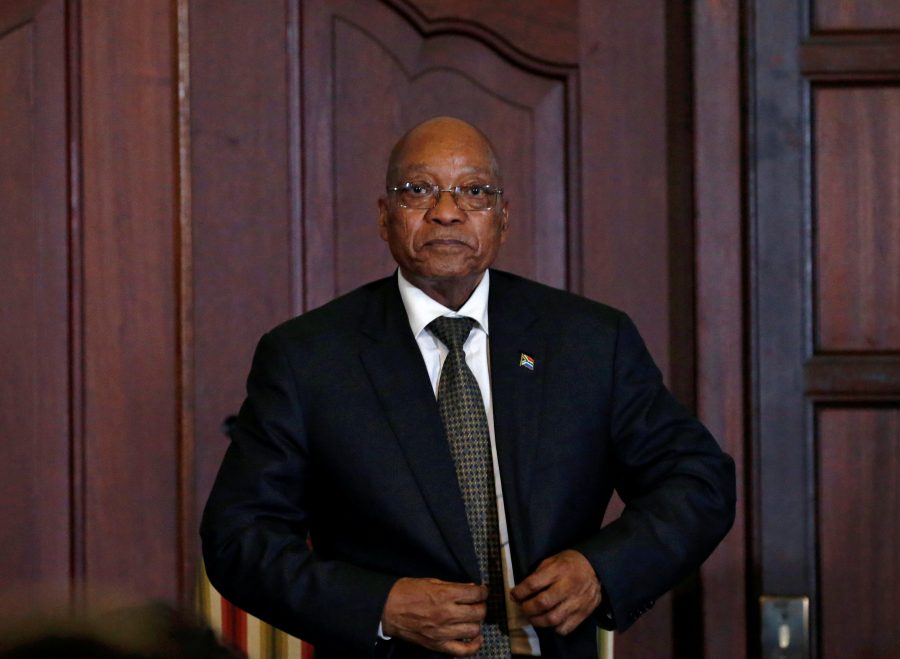
(Additional reporting by Olivia Kumwenda-Mtambo in Johannesburg; Writing by Ed Stoddard; Editing by Jeremy Gaunt and John Stonestreet)
***
Gigaba Says He Will Not Be Reckless About Nuclear Funding
PRETORIA (Reuters) – New South African Finance Minister Malusi Gigaba said on Saturday he would not be “reckless” when it came to funding for controversial plans to add more nuclear power to the energy mix of Africa’s most industrialised economy.
“The principle stands that it will be implemented at a pace and scale that the country can afford … I don’t think we will or should try to be reckless about it,” Gigaba said in response to a question about the programme at a media briefing.
(Reporting by Mfuneko Toyana; Writing by Ed Stoddard; Editing by Alexander Smith)